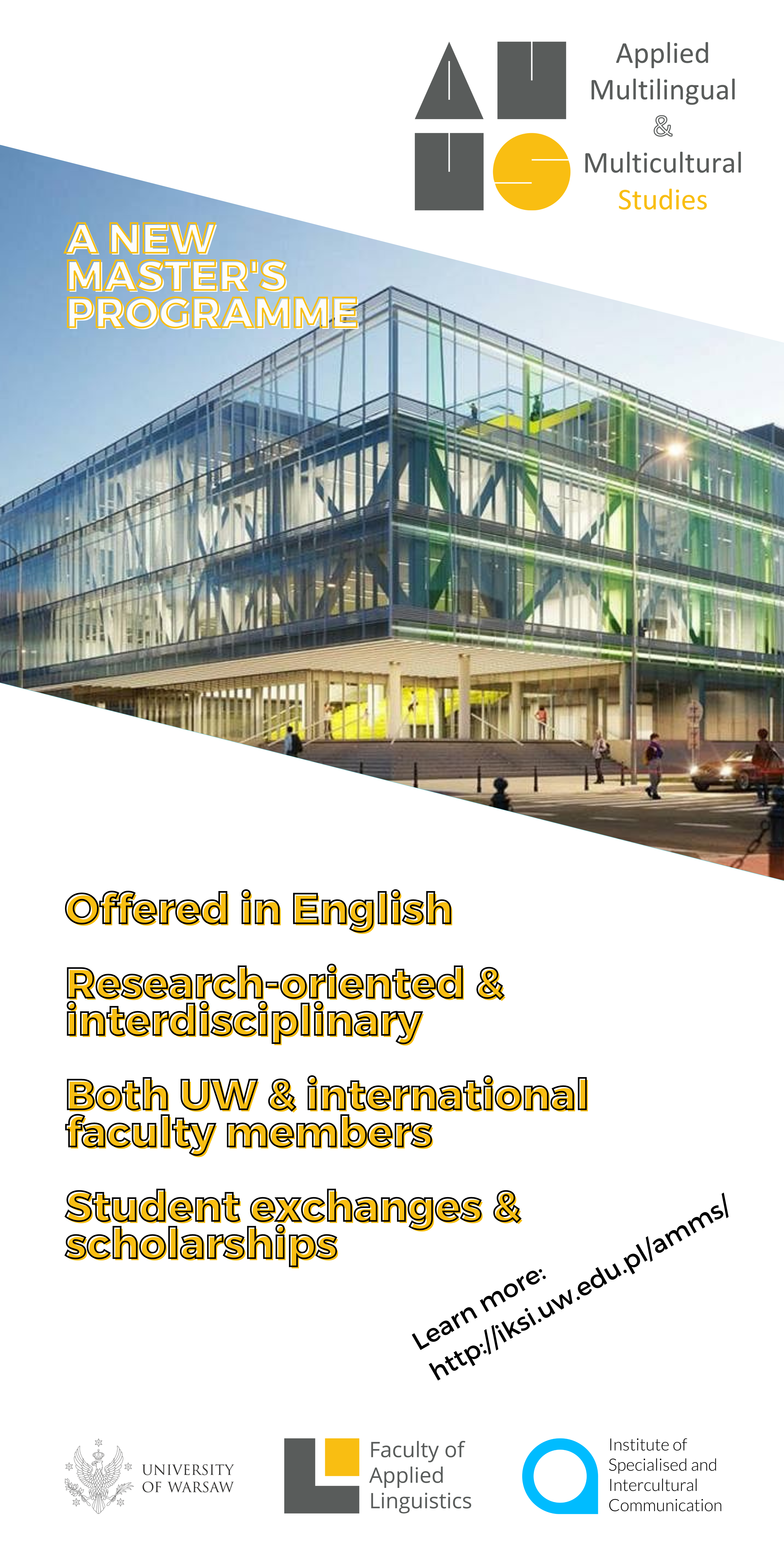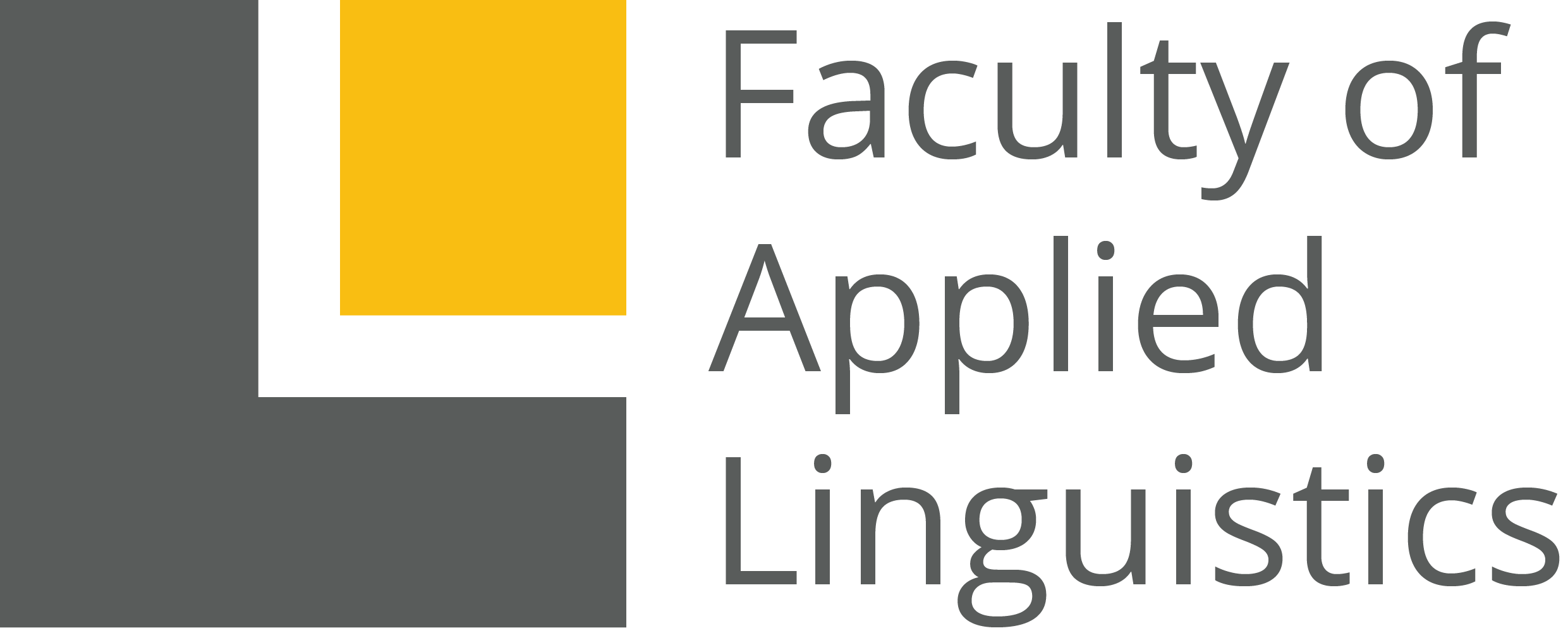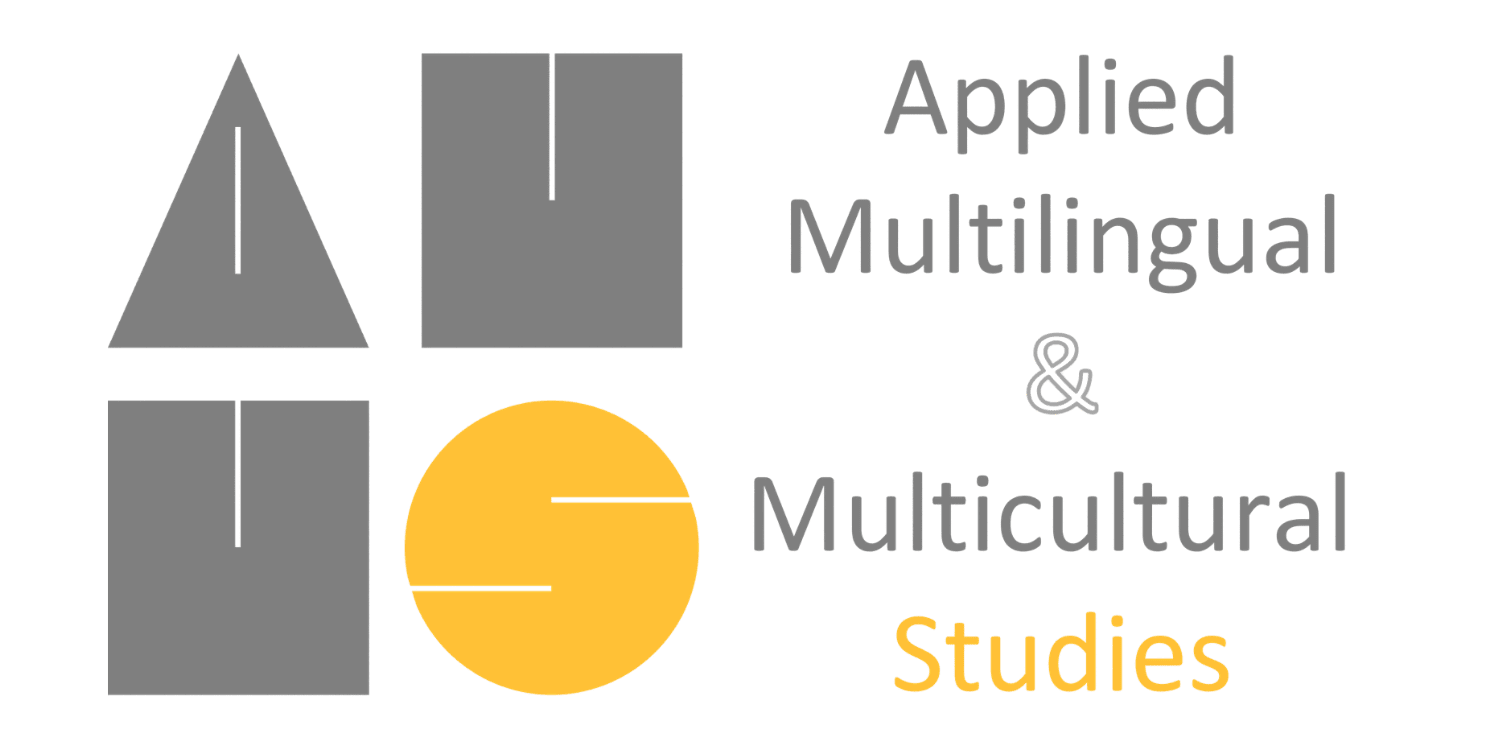About

Applied Multilingual and Multicultural Studies AMMS
is to prepare graduates to work in a multilingual and multicultural environment, where proficiency in several foreign languages is mandatory. The main concept of education relies on a combination of current academic knowledge and the effects of progress in scientific disciplines. The programme of Applied Multilingual and Multicultural Studies includes modules that equip graduates with the knowledge, competences and skills in the field of broadly understood issues related to multilingualism and multiculturalism. An important aspect of the programme is its research and interdisciplinary character. It covers a number of issues from the sociolinguistic, psycholinguistic and cultural perspective. It includes courses preparing students to conduct further research and apply for admission to doctoral studies, apply for grants and obtain funds, participate in research conferences and write research articles and projects.
Our programme allows students to model their own learning path. We offer elective courses to choose from, thanks to which students have the opportunity to develop their interests and focus on in-depth study of the selected research field. In addition, in order to individualise the learning path, funding and scholarships for one-week study visits to the best European research centres working in the field of multilingualism and multiculturalism, e.g., University College London, the University of Oslo, the University of the Basque Country, will be provided so that students are also given an opportunity to be educated under the supervision of the best researchers.
A great advantage of the programme Applied Multilingual and Multicultural Studies is mobility consisting in carrying out part-time studies abroad under the Erasmus+ programme or the Eurocampus programme. Mobility of AM&MS students is an integral element of the programme, thanks to which the programme is characterised by a high degree of internationalisation.
The programme relates to the tradition of the school of applied linguistics existing at the University of Warsaw for over 50 years. Moreover, some of the classes will be conducted by outstanding specialists from other Polish universities and foreign research centres.
Graduates of this programme will be able to work as language policy consultants (e.g., in regional agencies, in the ministry, for the government, in EU structures), or as advisors to national and international governmental and non-governmental organisations. They can also become experts in multilingualism and multiculturalism in education, companies, as well as centres for immigrants.

